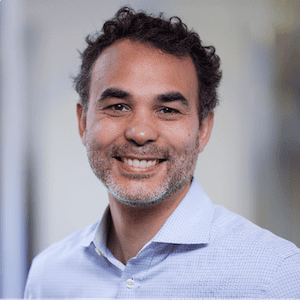-
Venture Capital is Broken – Here’s How to Fix It: A Q&A with Village Capital President Ross Baird
Venture capital investors are often backing the wrong ideas for the wrong reasons, hoping to strike it rich by dumping billions into frivolous apps that benefit only a wealthy sliver of the world’s population. Meanwhile, innovative solutions to pressing global challenges go underfunded. That's the thesis of Village Capital president Ross Baird, which he expresses in a new book. NextBillion editor Sonya Vann DeLoach discusses the book's message with Baird in this interview.
- Categories
- Investing, Social Enterprise
-
Water ATMs: How Technology is Improving Water Governance in Tanzania
The lack of accessible, potable water for many of the world's most remote communities is too often due to a water governance issue. But as Madison Lawson is at Catholic Relief Services points out, new enterprises are combining database management, water pumping and business models that can deliver fresh water to places most in need. She highlights one such "water ATM" system in Tanzania.
- Categories
- Environment, Social Enterprise, WASH
-
Live from European Microfinance Week: Watch Recordings of Friday’s Two Plenary Sessions
NextBillion is covering European Microfinance Week as a media partner, and we're planning to live-stream two plenary sessions on Friday, Dec. 1, via Facebook Live. You can watch the broadcasts on our Facebook Page at 9:00 - 10:30 AM Luxembourg Time/3:00 - 4:30 AM EST, and at 3:30-4:30 PM Luxembourg Time/9:30-10:30 AM EST.
- Categories
- Finance, Technology
-
Welfare Schemes Don’t Work if Nobody Knows About Them: Fixing India’s Information Deficit
An information drought is causing millions of India's poor to miss out on billions of dollars in vital government assistance. Haqdarshak is a tech platform that addresses this massive problem. Using a combination of technology and a network of people, the social enterprise aims to transform the way people find out about, apply for and benefit from various welfare schemes.
- Categories
- Education, Social Enterprise, Technology
-
Blended Finance Gets a $500 Million Boost: Convergence CEO Discusses Groundbreaking Partnership with IFC
US $2.5 trillion: That’s the estimated funding gap the world needs to close in order to achieve the Sustainable Development Goals. To achieve this daunting goal, says Convergence CEO Joan Larrea, “We need to tap into new sources of capital, particularly from private investors” – a goal Convergence advances by connecting, educating and supporting investors to execute blended finance transactions. This approach recently got a half billion dollar shot in the arm; our interview with Larrea reveals how.
- Categories
- Health Care, Investing
-
Financial Services for Real People: Using Behavioral Science to Boost Financial Health in Latin America
Behavioral economics illustrates how we humans often fail to plan beyond the immediate future. Over the past two years, the MetLife Foundation and behavioral economics lab ideas42 have examined the behavioral barriers standing in the way of financial health for low-income people in two pilot markets, Mexico and Chile. The two organizations have designed solutions that facilitate retirement savings, short-term savings and access to credit.
- Categories
- Finance
-
Six Ways MarketBookshelf.com Can Improve How We Share Global Health Market Research
Preventing research duplication in the global health arena is critically important – but it's also beyond challenging, given the large number of organizations working at country, regional and global levels. It's with these challenges in mind that organizers have launched MarketBookshelf.com, a new, one-stop platform for sharing global health market literature. The site aims to consolidate market literature across donors, sectors and health areas to improve – and ultimately change – how the global health market community disseminates its research.
- Categories
- Health Care, Technology
-
Philanthropy is Changing Fast: 12 Lessons from Three Reports
A slew of reports over the last two years from the more progressive spheres of the social good sector shows that philanthropy cannot continue with “business as usual” if we hope to actually achieve the global SDGs. Mark Horoszowski and Petra Barbu of MovingWorlds pull some nuggets of wisdom from several recent reports, all pointing toward new rules the changemakers of the future are, or soon will be, following.
- Categories
- Social Enterprise
- Tags
- philanthropy










